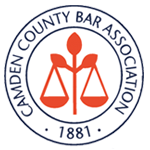Our internal clocks are designed to keep us awake during daylight hours and asleep at night, but many jobs require workers to adjust their bodies to the opposite kinds of schedules. People who work as nurses, doctors, at 24-hour grocery stores, truck drivers, night shifts at construction sites, and other kinds of jobs with odd hours are often unable to maintain regular sleep schedules. This can lead to excessive sleepiness and insomnia, a medical condition referred to as shift work disorder. This in turn can lead to chronic medical conditions that worsen with time. Although many employees are able to function well when working at night, others experience significant problems that interfere with their daily lives, and they might not even realize how serious the issue is until they are very ill or get hurt on the job.
What Are the Symptoms of Shift Work Disorder?
The symptoms of shift work disorder include feeling fatigued even after getting enough sleep, an inability to concentrate or maintain focus, and being unable to perform job responsibilities. These employees could also feel anxious, depressed, and have problems with their coordination. Immunity problems are also common, so they might be more prone to catching colds and getting sick.
Nighttime sleep is deeper and more restful, and daytime sleep does not rejuvenate the body in the same way because it is typically lighter. Chronic sleep loss and shift work disorder have both been linked to a variety of adverse health conditions, such as heart disease, obesity, and diabetes. Think about it: Someone who works from 11:00 p.m. until 7:00 a.m. will have to sleep during the day when most people are active and eating at regular mealtimes. Being up working all night could easily lead to not eating right; instead of sitting down to a meal at 6:00 p.m., these workers might be grabbing fast food at 3:00 a.m. Finding time to eat right and exercise can be very hard for shift workers.
What about Rotating Work Schedules?
A regular sleep schedule is essential for your health and well-being, but your body may be able to adjust to working night shifts all the time. Rotating work schedules can be more problematic because they are less consistent. The Bureau of Labor Statistics reports that approximately two percent of workers who have non-daytime schedules work rotating shifts; this is seen in health care, transportation, public administration, construction, and hospitality. These employees take turns working eight- to 12-hour shifts during the day and night, but it is not the same every day. Therefore, a bus driver might end up working four night shifts in a row, have three days off, then three consecutive day shifts. Is it easy to rest and recuperate on those days off? Everyone is different.
Rotating shifts are beneficial to companies because they allow for more work to be done in 24-hour periods. However, not being able to recover in between shifts and the changing hours have been shown to negatively impact employee health. The U.S. Department of Health and Human Services reports that disrupting an individual’s biological circadian rhythm/internal clock and sleep-wake cycle can lead to psychosomatic disorders and troubles, impairment of performance efficiency, and even cancer. Like working night shifts, rotating shifts can also cause problems for these employees’ families and social lives.
Are People with Shift Work Disorder More Likely to Get Hurt at Work?
Fatigued workers are more likely to get injured on the job because they are not able to concentrate as well as fully rested employees. Studies have shown that working night shifts can lead to more workplace incidences, but they also show that many of these occur from a lack of supervision. It is not unusual for night-shift workers to be on site without anyone keeping an eye on them, and this is when accidents can happen.
It has been reported that employees who work with little or no supervision during the night could be at two to three times at higher risk of getting harmed, and some of these injuries keep them out of work for more than 30 days. A lack of supervision means that employees may be more likely to take unnecessary risks and fail to follow company regulations. When a lack of supervision is combined with disruptions in normal sleep patterns, you can well imagine that the risks increase even further.
If you add in the factor working around dangerous materials or machinery, you can have a real recipe for disaster. The job of truck driver is one example of checking these boxes, because these workers often drive at night and usually have long shifts that can last 12 hours or longer. They have no one supervising them and are operating very large vehicles that can be deadly when drivers are tired, distracted, or have other reasons for losing control.
What Should I Do if I Have Shift Work Disorder?
If you believe that you have shift work disorder, the best course of action is to visit your doctor’s office for an evaluation. Once you have a diagnosis, you can try speaking to a supervisor to see if there are any options available to you. It might be possible to get a daytime shift or to even find a job with another company that can give you hours during the day instead of at night. It could be hard to prove that your diabetes or heart problem was caused by your work schedule, but if you have medical records, diagnostic tests, and a physician’s opinion to back you up, you might be able to get assigned different hours.
In some states, employees who have preexisting conditions that are accelerated or aggravated by working conditions may be eligible for workers’ compensation benefits. There have also been cases in which employees have successfully won claims that their medical conditions were caused by work shift disorders, but obtaining the evidence can be quite challenging.
Does Workers’ Compensation Cover Shift Work Disorder Claims?
Although the National Sleep Foundation classifies shift work disorder as a medical condition, claiming it on workers’ compensation can be difficult. This insurance pays benefits for employees who experience injuries and illnesses that are related to workplace accidents. Therefore, although claiming medical expenses for falling off a broken ladder or from being exposed to harmful chemicals on the job could be a black and white issue, shift work disorder-related medical conditions are more of a gray area.
If you work night shift and were fatigued when you got into a workplace accident, there might be a better chance of making a workers’ compensation claim and getting benefits, but there are never any guarantees. When approved, these benefits will pay for your medical expenses that result from an accident or illness, including an initial diagnosis, testing, procedures, surgeries, medication, follow-up appointments, and cost for rehabilitation therapy.
If you are unable to work temporarily or permanently because of a work-related accident or illness, workers’ compensation insurance can also provide monetary benefits for partial wage replacement. These would start when you are unable to work. As an example, temporary total disability benefits would equal two-thirds of your average weekly grow income. Permanent partial or total disability benefits are generally paid in lump-sum amounts. These are basic guidelines, and the amounts and length of the payments depend on the nature of the injury and state laws.
Cherry Hill Workers’ Compensation Lawyers at Pietras Saracino Smith & Meeks, LLP, Understand the Problems Associated with Shift Work Disorder
Almost nine million people in the United States perform shift work, and there is no way to tell how many of them have medical conditions that are related to these tough work schedules. If you need help with a workers’ compensation claim related to any kind of work-related injury or illness, reach out to the experienced Cherry Hill workers’ compensation lawyers at Pietras Saracino Smith & Meeks, LLP. Call us today at 856-761-3773 or contact us online to schedule a free consultation. Located in Cherry Hill, New Jersey, we serve clients in Camden, Cinnaminson, Delran, Maple Shade, Pennsauken, and throughout South Jersey.













